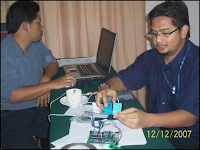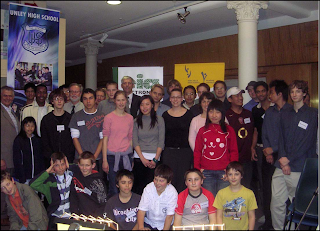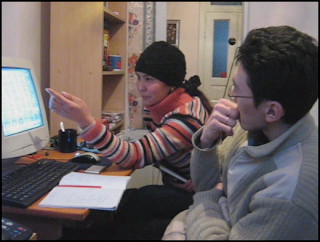Have you got an idea on how to help these underprivillaged people?
Well here's your chance!
Mondialogo Engineering Award
An initiative by Daimler and UNESCO, this competition tries to address the UN's Millennium Developement Goals (MDG). The great thing about this competition is that it requires at least two teams to collaborate on a project; each one must be from a developing and a developed country. Read about our entry below.
IEEE Presidents' Change the World Competition
Want to win US$10000 and be named the IEEE Student Humanitarian Supreme while changing the world? This is for you!
Google's Project 10^100
May Those Who Help The Most Win. Got an idea, but think it's too costly to work? Well Google has lots of money...
Microsoft's Imagine Cup
Does any of the following fits you?; programmer / game developer / roboticist / IT person / photographer / film maker / designer. This is another competition to address the UN's MDG, with lots of categories to choose from.
LiveEdge
Not really into humanitarian efforts? More into environmental and energy saving? Not to worry. This one is for you (as long as you can design electronic systems, though).
5 competitions, $1000s of prize money, one goal;
make the world a better place.
A team of students from The University of Adelaide, South Australia, is participating in the Mondialogo Engineering Award. The project will be an ICT driven poverty eradication model which at the same time will empower businesses. We currently have working models in Kyrgyzstan and Malawi. Here's our project page on the Mondialogo site.
The entry into this competition is one part of a continuous project we are doing. This blog was actually set up for a previous project. Look around and read about some of the things that we have done.
If you are interested in our project and want to change the world too, leave a comment or two. We would love to hear your ideas and suggestions.
And don't forget to visit other blogs talking about poverty too!















